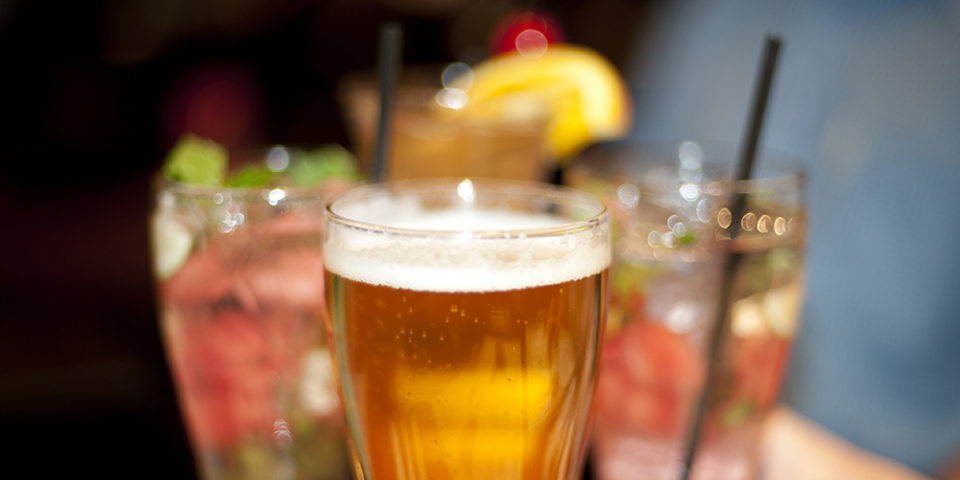Is binge drinking harmful?
It’s the weekend and you’ve had a few margaritas. That couldn’t possibly be considered binge drinking, could it? Therapist Dede Norungolo, LPC, explained why the answer might be yes, and how this regular behavior can affect your body.
What is binge drinking?
Research shows that for women, binge drinking involves consuming four or more drinks in roughly two hours. For men, the number of drinks to qualify for binge drinking is five or more in a brief timeframe, and often without food on the stomach.
“But this is based on how a trained bartender is required to pour,” said Norungolo. This means people are often drinking much more than they expect, depending on the size of the drink. Cocktails can also contain multiple types of alcohol.
Using the National Institute of Health’s cocktail calculator, a typical margarita consists of 1.7 U.S. standard drinks. Three margaritas equal 5.1 standard drinks.
“Binging with alcohol is particularly troublesome over time because it can lead to substance use disorders such as alcoholism,” she said.
How does binge drinking affect your body?
Here’s how alcohol can affect you from head to toe:
- Alcohol interferes with the brain’s communication pathways and can affect the way the brain looks and works. Disruptions can change mood and behavior and make it harder to think clearly or physically move.
- Drinking a lot over a long time or too much on a single occasion can damage the heart leading to cardiomyopathy, arrhythmias (irregular heartbeat), stroke or high blood pressure.
- Heavy drinking takes a toll on the liver, possibly resulting in problems such as fatty liver, alcoholic hepatitis, fibrosis or cirrhosis.
- Alcohol causes the pancreas to produce toxic substances that can eventually lead to pancreatitis.
- There is a strong scientific consensus of an association between alcohol drinking and several types of cancer, based on extensive reviews of research studies.
- And, drinking too much can weaken your immune system, making your body a much easier target for disease.
“High-risk alcohol use can be dangerous for anyone, but it’s especially dangerous for people under 21 because their brains are still developing and could become permanently impaired,” said Norungolo. “Combine that with a family history of alcoholism and the outcome can be even more detrimental.”
What can you do if you suspect a loved one is binge drinking?
If you suspect someone is binge drinking, or drinking at high-risk levels, and it’s undermining the person’s abilities to manage emotions, maintain employment or perform adequately academically, or if it is negatively impacting memory or cognitive functioning, share this online self-assessment tool.
If your loved one is a college student, resources can be found on college campuses through counseling and psychological services centers for those enrolled. In nearly every community there are also meetings for Alcoholics Anonymous, Celebrate Recovery, SMART Recovery or other substance use recovery groups that are eager to support someone seeking harm reduction or abstinence.
“If you are in a place of contemplating not using alcohol or other substances, have a conversation with an addiction counselor or another medical provider you trust,” said Norungolo. “They can help you better understand harm reduction, lifestyle related disease, and how not using alcohol or other potentially harmful substances can help you have a healthier life.”
Find a doctor
Whether you’re looking for a primary care physician or need to see a specialist, we’re here to help with experienced, compassionate care near you.
Find a Doctor

